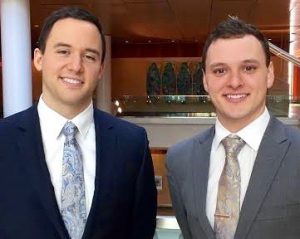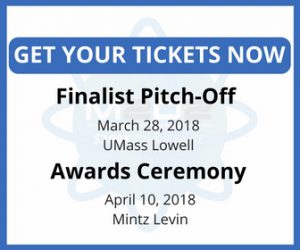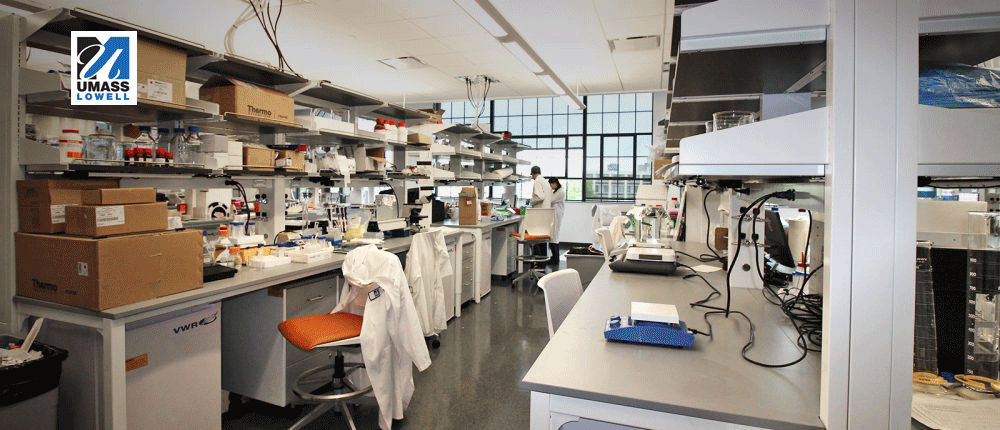
Andy Kozminski and Michael Moore of MedKairos
MedKairos is one of 20 medtech startups chosen as finalists in the 7th annual M2D2 $200K Challenge. Co-founder Michael Moore explained their innovation and the story behind its inspiration and development.
What is the innovation you’ve entered in the M2D2 $200K Challenge?
One out of five biopsies fails to return a diagnosis. Our technology intervenes during the procedure, so patients will only undergo the procedure once.
What inspired you to develop your device?
This venture was born from my hospital experience as a medical student and learning that at times medicine can more of an art than a science. Countless times I saw patients readmitted due to repeated procedures, just adding cost and senseless waiting to their medical journey. I had entered medical school to improve patient care, and I found this venture to be an opportunity to accomplish that goal on a much larger scale than I had ever imagined.
I attribute my inspiration and motivation largely to the medical journey that my family underwent in 2009. My father had found a lump in his neck and was referred to a surgeon for a “routine” biopsy procedure. After three separate biopsies spaced out over a month’s time, the physician made the decision to take him into surgery and make the diagnosis after resecting the mass. The significant stress and pain of this process left our family feeling powerless before chemo had even begun. I had come to believe that our story was an anomaly until I learned that this happens to 20% of patients that undergo this procedure. This amounts to hundreds of thousands of patients and families every year spending more time and money anxiously waiting for their diagnoses. I knew both personally and professionally that this was a problem that needed to be addressed. So in October of 2017, I decided to take a leave from my medical education to start our company, MedKairos.
What are the most significant barriers you’ve faced and overcome?
The most challenging part of medical innovation is convincing physicians to change their established processes. Even when a need is clear and well-established in the literature, inertia to new techniques is great because doctors are working to protect a patient’s life. We have been working to mitigate this inertia by involving physicians throughout the ideation and development process. But there will always be individuals who prefer the current techniques, no matter the cost and inefficiencies.
Can you share a “Eureka!” moment—a breakthrough in the development of your idea?
 Our “Eureka!” moment came when my co-founder and I were in the room of a patient undergoing a lung biopsy. A technician assigned to the case would come and manually count the cells in the biopsy sample to ensure that enough was collected to make a diagnosis. While this sounds good in theory, it is much more challenging in practice. We heard the technician audibly complain as they struggled to drag their massive “mobile” lab down the busy hospital hallway and into the biopsy suite. Once the cart was set up and the patient was sedated, the procedure began.
Our “Eureka!” moment came when my co-founder and I were in the room of a patient undergoing a lung biopsy. A technician assigned to the case would come and manually count the cells in the biopsy sample to ensure that enough was collected to make a diagnosis. While this sounds good in theory, it is much more challenging in practice. We heard the technician audibly complain as they struggled to drag their massive “mobile” lab down the busy hospital hallway and into the biopsy suite. Once the cart was set up and the patient was sedated, the procedure began.
The first sample was collected by the surgeon and given to the technician for assessment. The protocol calls for the onsite technician to video conference call the pathologist in the lab for confirmation, but the video service had not been paid for (which we have since learned is a common occurrence). The technician had to find a credit card to pay for the service and continue the procedure. Beyond the challenges of setting up the quality assessment equipment, each needle pass required about 10 minutes to be assessed and verified. This made a procedure that should have lasted 15 minutes carry on for more than an hour, costing the valuable time of the surgeon and adding additional risk to the patient, who was sedated the whole time. When we walked out of that room, we knew exactly where the primary bottlenecks of the procedure were and how we needed to go about addressing them.
If you win, what’s next?
If we were to win the M2D2 $200K challenge, we would immediately launch our Beta software package into major cancer centers (The University of Michigan, Mount Sinai, Henry Ford) to establish traction while collecting a substantial amount of crowdsourced data for our machine learning platform that we plan on launching in 2019.
Learn more at medkairos.com
- Challenge Pitch-Off—Wednesday March 28 at 5:00 pm, University Crossing, 220 Pawtucket St., Lowell
-
Finalist Awards & Networking Event—Tuesday April 10 at 5:00 pm, Mintz Levin, 1 Financial Center, Boston
For more information and tickets, visit https://www.eventbrite.com/e/m2d2-200k-challenge-finalist-pitch-off-awards-ceremony-tickets-43307428685
